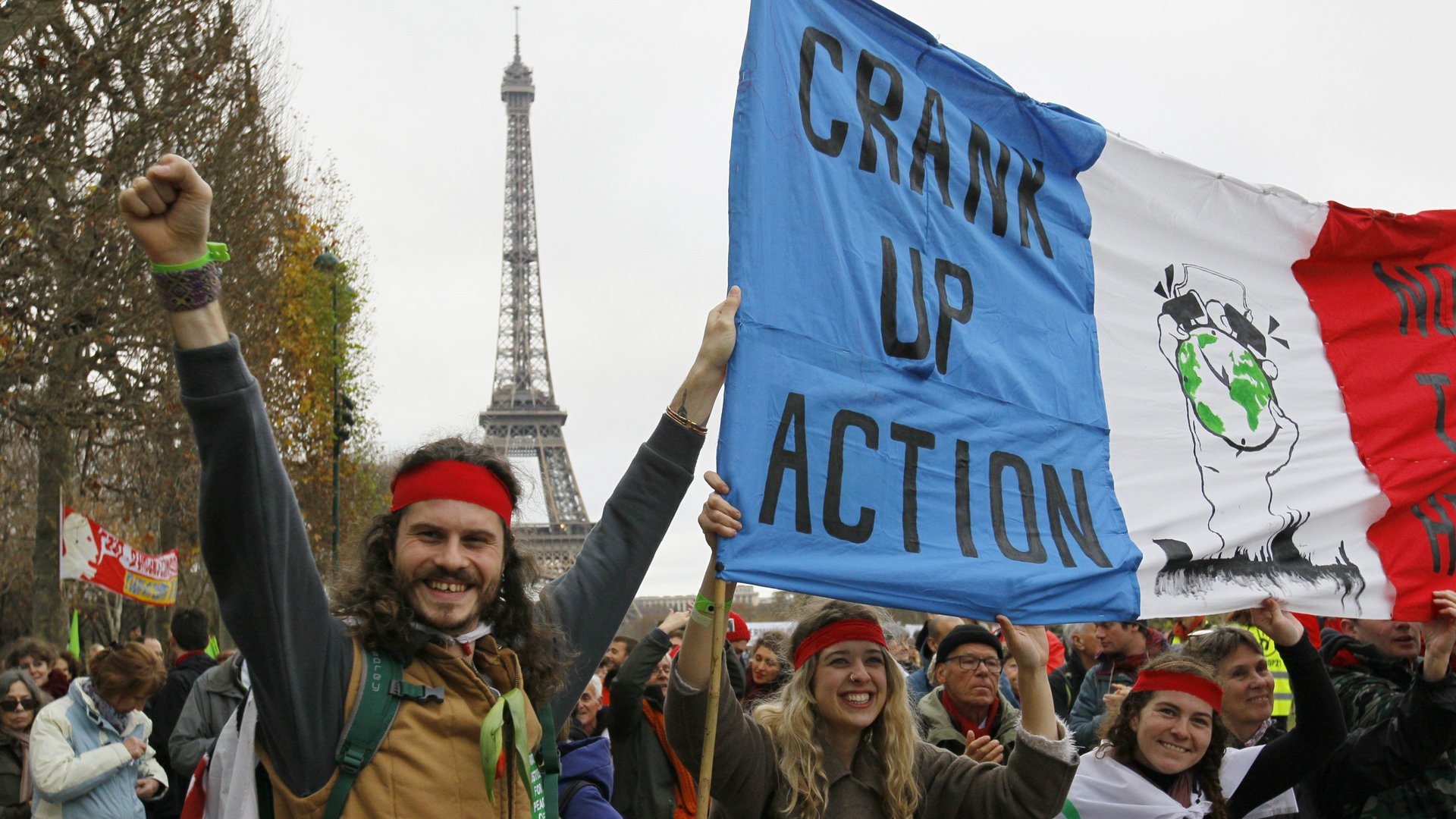Our psychological blocks are destroying the planet
World leaders finally reached a climate change deal in Paris today, Dec. 12, after weeks of negotiation. Of course, the international treaty with all its bureaucratic complications and delays would be superfluous, if only we all did our part to mitigate the effects of climate change, on an individual level. But nearly everyone drags their feet, and psychological blocks play a big part in our inaction.


World leaders finally reached a climate change deal in Paris today, Dec. 12, after weeks of negotiation. Of course, the international treaty with all its bureaucratic complications and delays would be superfluous, if only we all did our part to mitigate the effects of climate change, on an individual level. But nearly everyone drags their feet, and psychological blocks play a big part in our inaction.
Robert Gifford, professor of psychology and environmental studies at the University of Victoria, Canada, studies the thinking that leads so many people to ignore climate change. In 2011, he published a paper detailing 29 reasons for our inability for take individual action in American Psychologist. Earlier this year, he updated that list to include 33 reasons.
A sense of powerlessness is one of the most common psychological blocks to addressing climate change, Gifford tells Quartz. Studies have shown that people sometimes fail to act when they believe they can’t control the outcome, and in the case of climate change, it’s hard to perceive any individual influence over large-scale environmental phenomena. Such a belief is a strong predictor of whether someone chooses to take public transport over a private car.
“Conflicting values, goals, and aspirations” is another common reason for inaction, he says. It’s usually given by people who think climate change is important, but put their personal needs ahead, such as financial, job, family, and health goals.
“An example would be the very concerned mum who drives her kids to school because she’s worried about their safety, even though she knows they ought to walk to school for their own health and for the climate,” says Gifford.
Gifford identifies several other excuses including Technosalvation (“The engineers will fix everything so I don’t need to do anything,” he explains), Tokenism (the belief that a single act, like recycling, is sufficient) and faith that a religious deity or the secular equivalent, Mother Nature, has everything under control.
But just as there are psychological barriers to helping the environment, there are also psychological tricks to persuading people to take action.
“Just as in commercial advertisements, some messages work better than others,” says Gifford. Empowering messages such as “You can be a leader, you can be a hero, you can do it,” inspire more people to take action (pdf). Messages about sacrifice, such as, “Climate change is here, we’re all going to have to cut back,” are less effective.
Gifford says that incentives can also be useful—“not necessarily money but recognition or other kinds of reinforcements,”—and that, for those looking to influence others, it’s more important to behave in an environmentally friendly manner than to talk about the issue. “Other people will notice that you’re walking the walk, especially if you’re a visible person like a community leader or a CEO,” he says.
Ultimately though, whatever the psychological barrier, Gifford says the clear rational solution is simply for everyone to do their part.